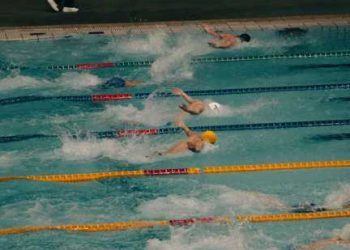The Power of Sports Psychology: How Mental Training Enhances Performance
Sports psychology, a relatively new and rapidly growing field, has taken the athletic world by storm. Athletes from all walks of life have begun to recognize the incredible impact that mental training can have on their performance. In this blog post, we will explore the power of sports psychology and how it can enhance an athlete’s overall performance.
Sports psychology is the study of how psychological factors can influence an individual’s performance in sports or physical activities. It focuses on the mental aspects of sports, including enhancing mental skills, improving motivation and focus, managing stress, and building resilience. While physical training and technical skills are undoubtedly important in sports, it is the mental aspect that often sets elite athletes apart from the rest.
One key aspect of sports psychology is enhancing mental skills such as goal setting, visualization, and self-talk. Athletes who set clear and challenging goals for themselves are more likely to stay motivated and focused on their performance. Visualizing success, imagining a perfect performance, and mentally rehearsing key moments can help athletes improve their technique and boost their confidence. Self-talk, or the internal dialogue an athlete has with themselves, can either be positive or negative. Learning to replace negative thoughts with positive and reassuring self-talk can help athletes overcome doubts and perform at their best.
Furthermore, sports psychology helps athletes manage stress and anxiety, both on and off the field. Pressure situations in sports can often lead to nervousness and anxiety, which can negatively impact performance. However, through various techniques such as deep breathing exercises, progressive muscle relaxation, and mindfulness, athletes can learn to regulate their emotions and stay calm under pressure. Properly managing stress allows athletes to make better decisions, maintain focus, and perform at their peak, even in high-pressure situations.
Another crucial aspect of sports psychology is building resilience. Athletes face numerous challenges and setbacks throughout their careers, such as injuries, losses, and failures. Learning to bounce back from these challenges and develop a strong mindset is essential for long-term success. Sports psychologists help athletes build resilience by teaching them coping mechanisms, problem-solving skills, and strategies to maintain a positive mindset. Resilient athletes are more likely to persevere through adversity, learn from their failures, and ultimately enhance their performance.
The benefits of sports psychology are not limited to professional or elite athletes. Sports psychologists also work with recreational athletes, young athletes, and even non-athletes engaged in physical activities. For recreational athletes, sports psychology can help improve performance and enjoyment, and also manage stress and anxiety associated with competition. For young athletes, sports psychology can aid in developing mental skills such as focus, goal setting, and self-discipline. Non-athletes engaged in physical activities can benefit from sports psychology by improving motivation, enjoyment, and adherence to exercise routines.
Interestingly, the techniques and strategies used in sports psychology are not only valuable in the world of sports but can also be applied to other areas of life. The skills athletes learn, such as goal setting, visualization, and stress management, can be transferred to academics, careers, and personal relationships. Sports psychology helps individuals develop a growth mindset, a belief in their ability to learn and improve, which is essential for success in various aspects of life.
In conclusion, sports psychology is a powerful tool that can significantly enhance an athlete’s performance. Through mental training, athletes can develop essential mental skills, manage stress and anxiety, build resilience, and ultimately perform at their best. The benefits of sports psychology extend far beyond the world of sports, as the skills and strategies learned can be applied to other areas of life. As more athletes begin to recognize the power of sports psychology, it is expected that its impact will continue to grow and revolutionize the way we approach sports and physical activities.












